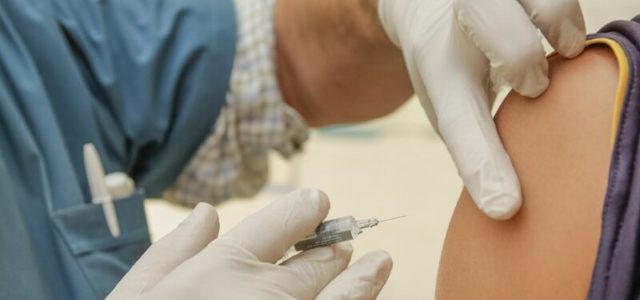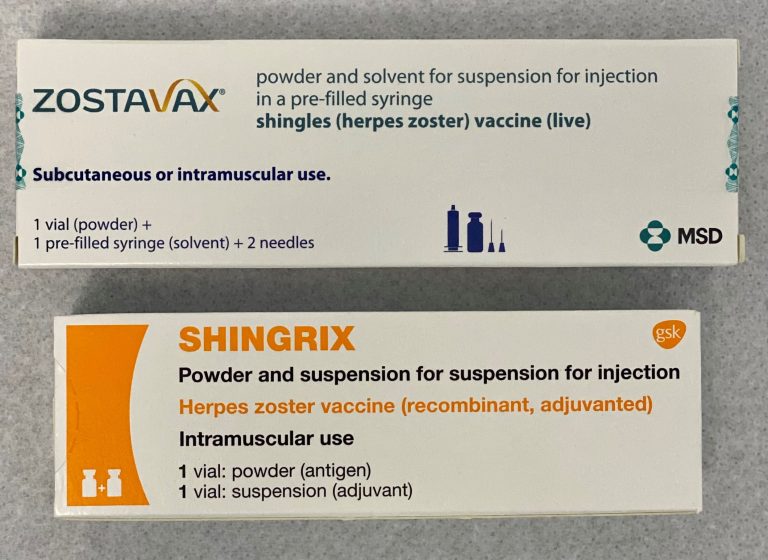ViiV Healthcare, the global specialist HIV company majority owned by GSK plc (LON:GSK), with Pfizer Inc. (NYSE:PFE) and Shionogi as shareholders, announced yesterday positive 12-month findings from the SOLAR study. SOLAR is the first head-to-head, Phase IIIb study of the first and only complete long-acting injectable regimen Cabenuva (cabotegravir, rilpivirine [CAB+RPV LA]) compared against complete daily oral regimen Biktarvy (bictegravir/emtricitabine/tenofovir alafenamide [BIC/FTC/TAF]).
Study findings showed that CAB+RPV LA dosed every two months achieved the primary endpoint of non-inferior virologic efficacy versus daily oral BIC/FTC/TAF, while 90% of participants who switched to CAB+RPV LA from BIC/FTC/TAF, and who completed a survey (n=425), preferred the long-acting regimen. Switching to CAB+RPV LA from BIC/FTC/TAF during the SOLAR study was efficacious, well-tolerated, and improved treatment satisfaction from baseline based on adjusted HIV Treatment Satisfaction Questionnaire status version scores (HIVTSQs). These data were presented at the 30th Conference on Retroviruses and Opportunistic Infections (CROI), being held in Seattle, Washington.
Harmony P. Garges, M.D., MPH, Chief Medical Officer at ViiV Healthcare, said: “The treatment needs of people living with HIV are changing, with ample evidence on patient preference suggesting some people living with HIV can experience challenges with taking daily oral treatment for HIV. It’s essential that people living with HIV have treatment options that can help alleviate these burdens and we believe that complete long-acting regimens are here to help address some of those challenges today. We are confident that cabotegravir, as part of a complete long-acting regimen, is a cornerstone for the long-acting treatment era in HIV medicine, as supported by its strong and durable efficacy, safety, and by the fact that 90% of participants in this study who completed a survey preferred a long-acting regimen after switching from their daily oral pills.”
In the SOLAR study, 670 participants who were virally supressed and taking BIC/FTC/TAF were randomised 2:1 to switch to CAB+RPV LA administered every two months (447 participants) or continue taking daily oral BIC/FTC/TAF (223 participants). The SOLAR study met its primary endpoint at Month 12, when CAB+RPV LA demonstrated non-inferior efficacy versus daily oral BIC/FTC/TAF based on the proportion of participants with HIV-1 RNA ≥50 c/mL using the FDA Snapshot algorithm and a 4% non-inferiority margin (mITT-E; CAB+RPV LA: 5/447 [1%], BIC/FTC/TAF: 1/223 [<1%], adjusted difference: 0.7%, 95% confidence interval [-0.7, 2.0]). The study found that rates of virologic suppression (HIV-1 RNA <50 c/mL) were similar between treatment arms (CAB+RPV LA: 403/447 [90%], BIC/FTC/TAF: 207/223 [93%], adjusted difference: -2.7%, 95% confidence interval [-7.0, 1.7]). Non-inferior virologic outcomes were confirmed in the ITT-E and Per Protocol (PP) analyses.
At the beginning of the study, 47% of participants reported always or often experiencing one or more challenges with taking their daily therapy, including “being worried about people unintentionally discovering their HIV status,” “being worried about forgetting to take their HIV medication,” or “feeling that taking their HIV medication was an uncomfortable reminder of their HIV status.” Mean treatment satisfaction scores (HIVTSQs) improved significantly at the conclusion of the study for participants taking CAB+RPV LA (+3.36) compared to BIC/FTC/TAF (-1.59) from baseline (CAB+RPV LA: 57.88, BIC/FTC/TAF: 58.38) (p<0.001). 90% of participants who switched to CAB+RPV LA and completed the survey, preferred long-acting therapy versus daily oral pills (n=382/425), with the top five reasons for preferring long-acting therapy being:
· I don’t have to worry as much about remembering to take HIV medication every day
· It is more convenient for me to receive injections every 2 months
· I do not have to carry my HIV medication with me
· I do not have to think about my HIV status every day
· I do not have to worry about others seeing or finding my HIV pills
Confirmed virologic failure (CVF) was infrequent. Two participants (0.4%) in the mITT-E analysis and one additional participant in the ITT-E analysis who received CAB+RPV LA, developed CVF, with subsequent identification of resistance-associated mutations (RAMs) to NNRTI and integrase inhibitors. No participant in the BIC/FTC/TAF treatment arm developed CVF.
Treatment with CAB+RPV LA and BIC/FTC/TAF were both well-tolerated. With the exclusion of injection site reaction (ISRs), adverse events (AEs) and serious adverse events (SAEs) were comparable between arms, although drug-related AEs were more frequent in the long-acting (the switch) arm (20% vs <1%). The most commonly reported drug-related AEs in the LA arm were pyrexia (3%), headache (2%), fatigue (2%), and diarrhoea (2%). In the BIC/FTC/TAF arm, the two drug-related AEs reported were weight gain (<1%) and abnormal hepatic function (<1%). Most ISRs in the long-acting arm were Grade 1 or 2 (98%) and short lived (median 3 days), with few participants discontinuing due to injection-related reasons (2%). More participants in the long-acting arm withdrew due to AEs (6% vs <1%).
Moti N. Ramgopal of the Midway Immunology and Research Center, Fort Pierce, Florida and Principal Investigator for SOLAR, said: “There are many people living with HIV who are virally suppressed but experience challenges taking a daily oral pill, including fears of accidentally disclosing their HIV status due to discovery of their medicine. The SOLAR findings demonstrate that CAB+RPV LA administered every two months is as effective as BIC/FTC/TAF, while also addressing some important challenges associated with taking daily HIV treatment. These findings raise the critical reminder that healthcare providers who prescribe HIV medicines should identify and incorporate patient preferences when making treatment recommendations, in addition to standard efficacy and safety data, to ensure that people living with HIV have the best treatment option for their needs.”
ViiV Healthcare’s cabotegravir in combination with rilpivirine, a product of Janssen Sciences Ireland Unlimited Company, one of the Janssen Pharmaceutical Companies of Johnson & Johnson, was co-developed as part of a collaboration with Janssen and builds on ViiV Healthcare’s industry-leading long-acting portfolio that is centred on delivering innovative medicines for the HIV community. The complete long-acting regimen of CAB+RPV LA is licensed in Canada, USA and Australia under the brand name Cabenuva, and in Europe and Japan as Vocabria (cabotegravir injection and tablets) and Rekambys (rilpivirine long-acting injectable suspension). Additional findings and analyses from the SOLAR study, including additional data on patient reported outcomes, will be presented at future congresses.
ViiV Healthcare is a global specialist HIV company established in November 2009 by GSK and Pfizer dedicated to delivering advances in treatment and care for people living with HIV and for people who are at risk of acquiring HIV. Shionogi became a ViiV shareholder in October 2012.









































